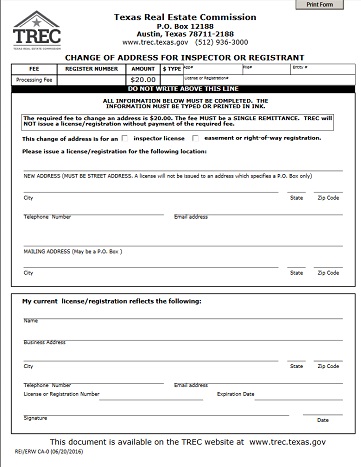Change of Address for Inspector or Registrant
Important Announcement! - TREC’s license management system is offline until December 15 when the new Real Estate and Appraiser License Management Portal (REALM Portal) launches. Learn more at www.trec.texas.gov/lms.
This form is to be used by an inspector or ERW registrant to change the business address.

